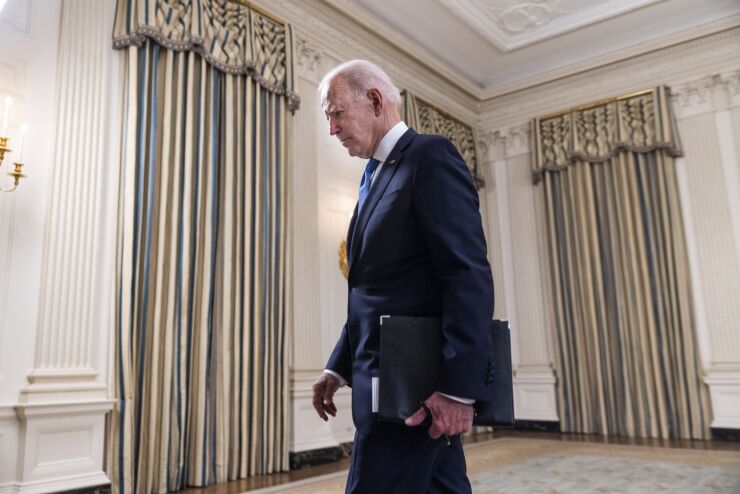President Joe Biden is directing government agencies to focus more on the fast-growing crypto market, from researching a U.S. digital dollar to combating illicit finance.
In an
Under the plan, federal agencies from the Treasury to the Commerce Department will have to research a number of topics, including the pros and cons of the government launching a U.S. digital currency. The directive also calls for studies and policy recommendations on issues ranging from protecting consumers to climate change.

Bitcoin
The order will “reinforce U.S. leadership in the global financial system and safeguard the long-term efficacy of critical national security tools like sanctions and anti-money laundering frameworks,” Brian Deese, director of the White House’s National Economic Council and National Security Adviser Jake Sullivan, said in a statement. It also “identifies the Administration’s policy priorities, both for cryptocurrencies and any future U.S. central bank digital currency, to help guide the evolution of the digital asset ecosystem in a way that is consistent with our values,” they said.
The studies mandated by the order include one led by the Treasury on the future of money and payment systems, and another from the Justice Department on the role of law enforcement agencies in detecting, investigating, and prosecuting crypto-related criminal activity. It also calls for regulators to help outline risks tokens could pose to financial stability and offer suggestions for new rules or legislative changes. Officials will also have to develop a framework for engaging with international partners on setting standards for digital assets.
Agencies will have between 90 days and one year to complete their studies, depending on the issue, according to the executive order. Once the reports are finished, the administration has said it plans to move quickly to carry out the recommendations.
The White House’s push to coordinate crypto regulation comes as countries from Singapore to the U.K. race to adopt standards for overseeing the industry, from licensing exchanges to curbing misleading advertising.
Congressional committees in the U.S. have also stepped up hearings on cryptocurrency, which has ballooned into a nearly $2 trillion market, to examine some of the areas that might need to be addressed through legislation. Those topics include stablecoins, which are private tokens typically pegged to the U.S. dollar and other fiat currencies.
At the same time, the Federal Reserve has been researching the prospect of issuing a central bank digital currency, or CBDC, which may require congressional action. The Fed has previously said a U.S. CBDC could help preserve the dollar’s dominance, as rival nations, like China, move forward with their own versions.
For its part, the White House is placing great urgency on research and development of a possible U.S. digital dollar, a senior administration official said on a call with reporters on Tuesday.
Sanctions evasion
While the directive puts the White House at the center of crypto policy, it’s unclear how much progress can be made before November’s midterm elections in which Democrats face the possibility of losing control of Congress. Although Republicans say crypto regulation is needed, they’ve often advocated a less-strict approach than their Democratic counterparts.
Biden’s plan also comes at a time of renewed focus on crypto following Russia’s invasion of Ukraine — with digital assets hailed as a key vehicle for donations to the Ukrainian government while also being vilified as a potential avenue for Russian individuals and entities to evade sanctions.
The senior administration official, who spoke on the condition of anonymity, said that in the case of Russia, U.S. officials don’t consider digital assets to be a viable workaround to the sweeping sanctions that have been imposed.





